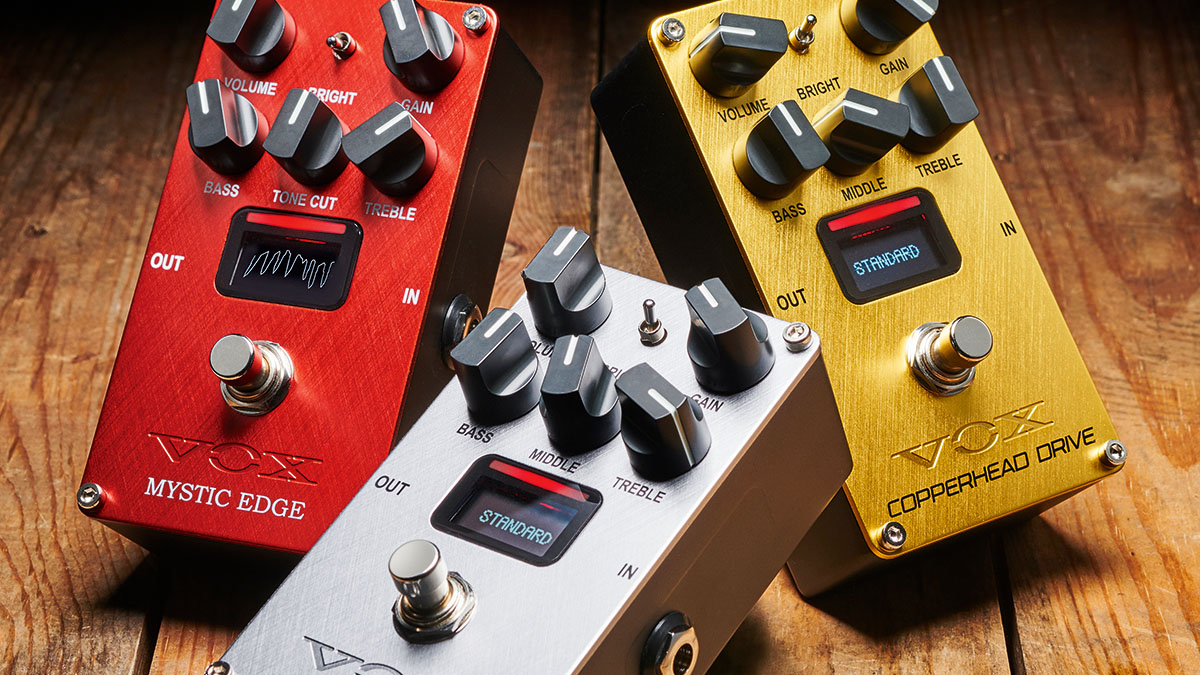MusicRadar Verdict
Presenting a superlative Vox-in-a-box, Marshall-in-a-box and a very tweakable and subtle US low-gain drive, the Valvenergy series is convincing enough on tone alone. But with the various output modes and the cab sim, it shows how the amp-in-a-box format can be modded for the 21st century.
Pros
- +
Very fine amp in a box tones.
- +
Practical set of features.
- +
Comprehensive EQ options on each of them.
Cons
- -
Not much to complain about here.
MusicRadar's got your back
What is it?
What differentiates the Valvenergy series from the 2.1 billion overdrive pedals presently on the market is the NuTube technology that promises sweet harmonic valve tone magic upon pressing down on the footswitch.
The NuTube is a mini vacuum tube, secreted under the enclosure in an all-analogue circuit that's designed to give you an overdrive response that is as musically rewarding as a tube amplifier. We all know that this is the platonic ideal for electric guitar tone; that analogue heat is what amp modellers have been working towards for decades.
Their algorithms are getting closer all the time, and yet still the lure of the vale is really something. Guitarists can be quite primal creatures. Sure, we like new stuff. But it's hard to let go of the idea that the inefficiency of the vacuum tube is where the magic lies.
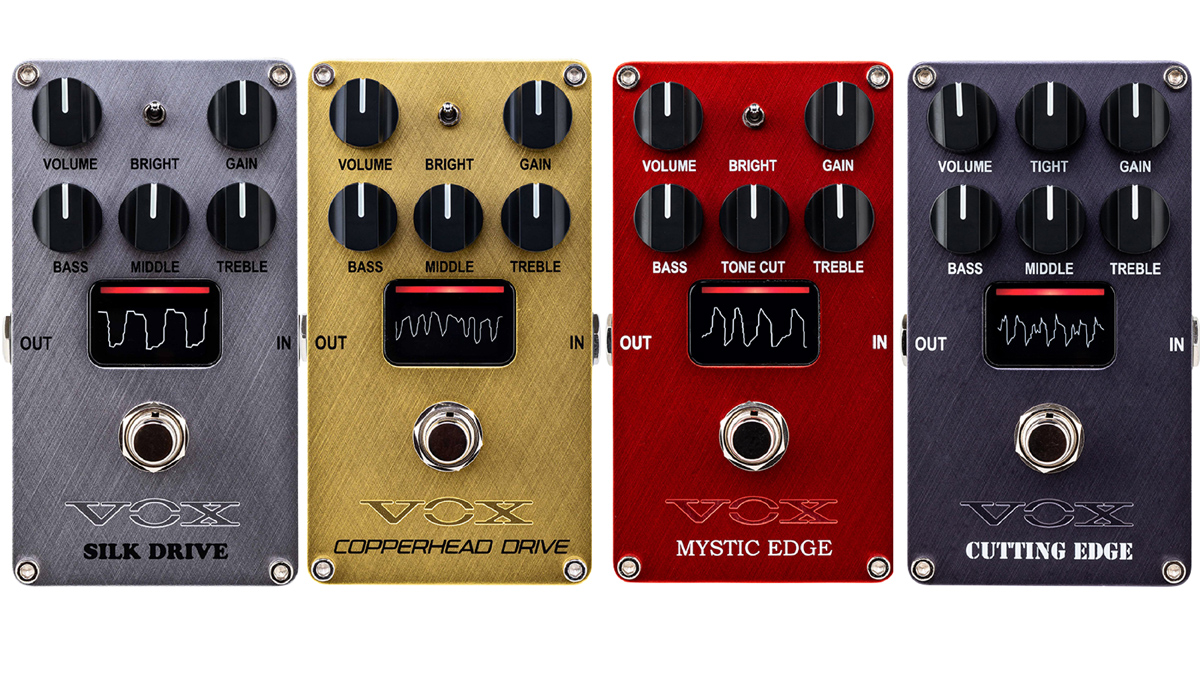
There are four types of amp drive in the Valvenergy series. We have the Silk Drive, Mystic Edge and Copperhead Drive here for review, while a fourth, the Cutting Edge, is designed to replicate the response of your contemporary high-gain US amplifiers. Appropriately, while our review models all feature a Bright switch the Cutting Edge has a Tight knob to assist you in dialling in some heavy metal chug.
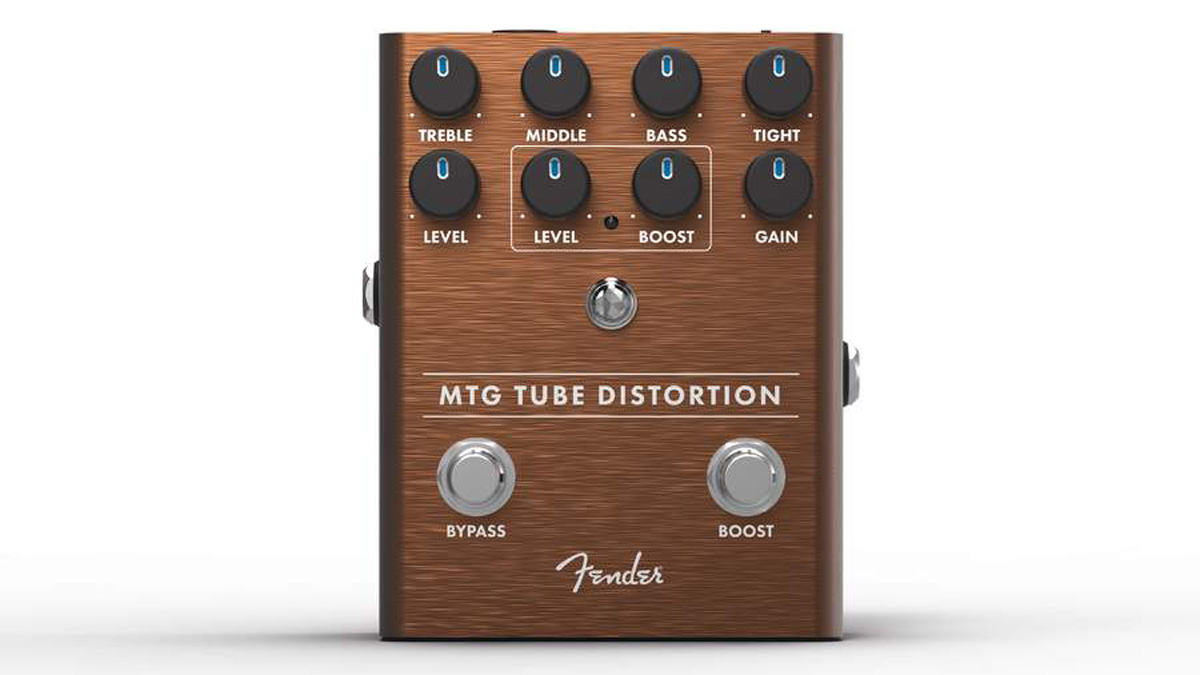
• Fender MTG Tube Distortion
With a 3-band EQ and a tight control, there’s plenty of scope for tone shaping, too.
• Boss JB-2 Angry Driver
You get a Blues Driver, world-renowned for recreating warm valve amp tones, and one of the best boutique distortions in the JHS Angry Charlie, housed together with full functionality as if they were two separate pedals.
• MXR M75 Super Badass Distortion
With impressive touch sensitivity and low noise levels, finished in a retro silver, it’s a great all-rounder for just about any kind of gain seeker.
Even before you get around to appraising the vacuum tube hugger-mugger in these pedals' circuitry, you might want to take a moment to admire the OLED display. It is very cool, like an oscilloscope it maps out the waveform as you are playing.
Okay, it's maybe a little gimmicky but there's nothing wrong with having a little visual flair, especially when these drives have to compete with so many others in the cabinet.
We were joking about the 2.1 billion overdrives, but you get the point. There's no shortage of them. And yet, still, we search... Maybe the next one will have the divine breakup you've been searching for. We live in hope.
On each pedal you'll find a choice of three output modes: you can set 'em up to go straight into the front end of your amp or as a line-level preamp. Alternatively, go direct into an audio interface/PA via the handy cab sim mode.
Furthermore, you can chain these pedals together and use the Channel Link feature and use them like additional drive channels on an amplifier. For some pedalboard setups, this could very handy indeed, and it is nice to see the R&D team at Vox taking the amp-like drive concept a little further like this.
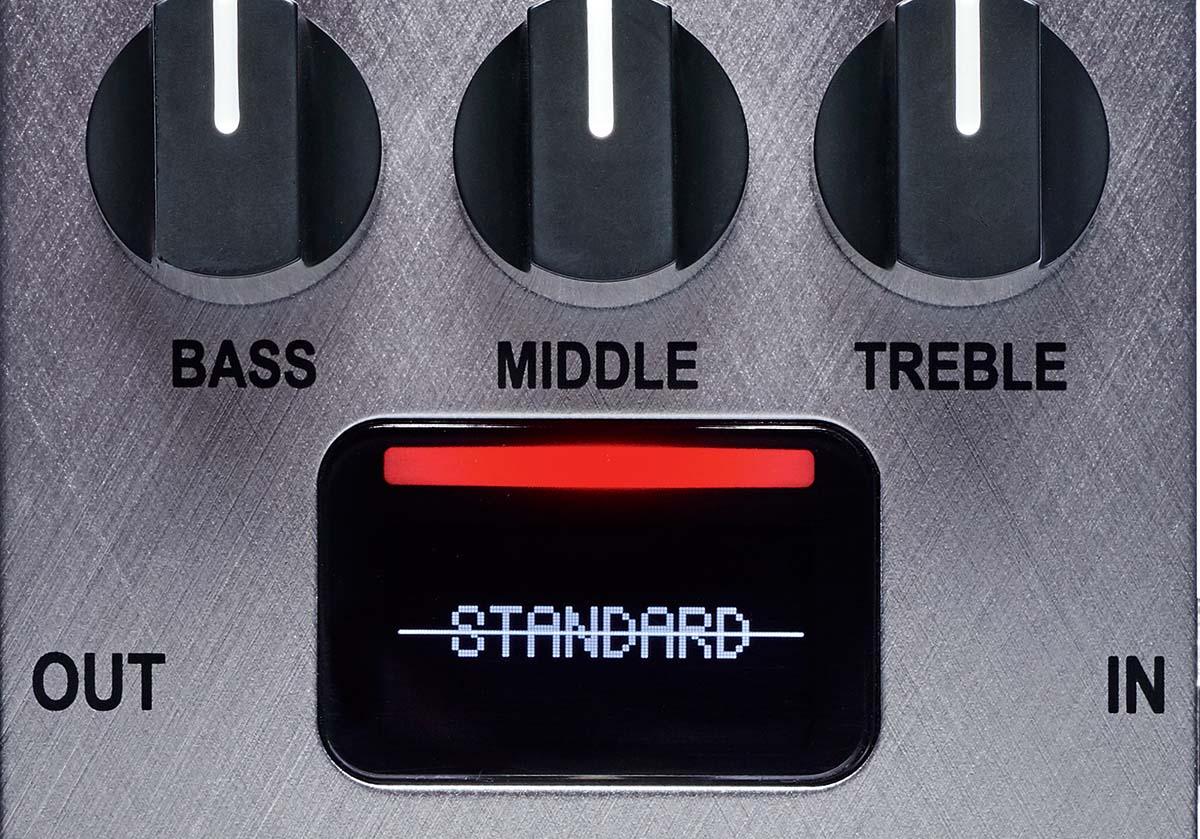
Performance and verdict
Copperhead Drive
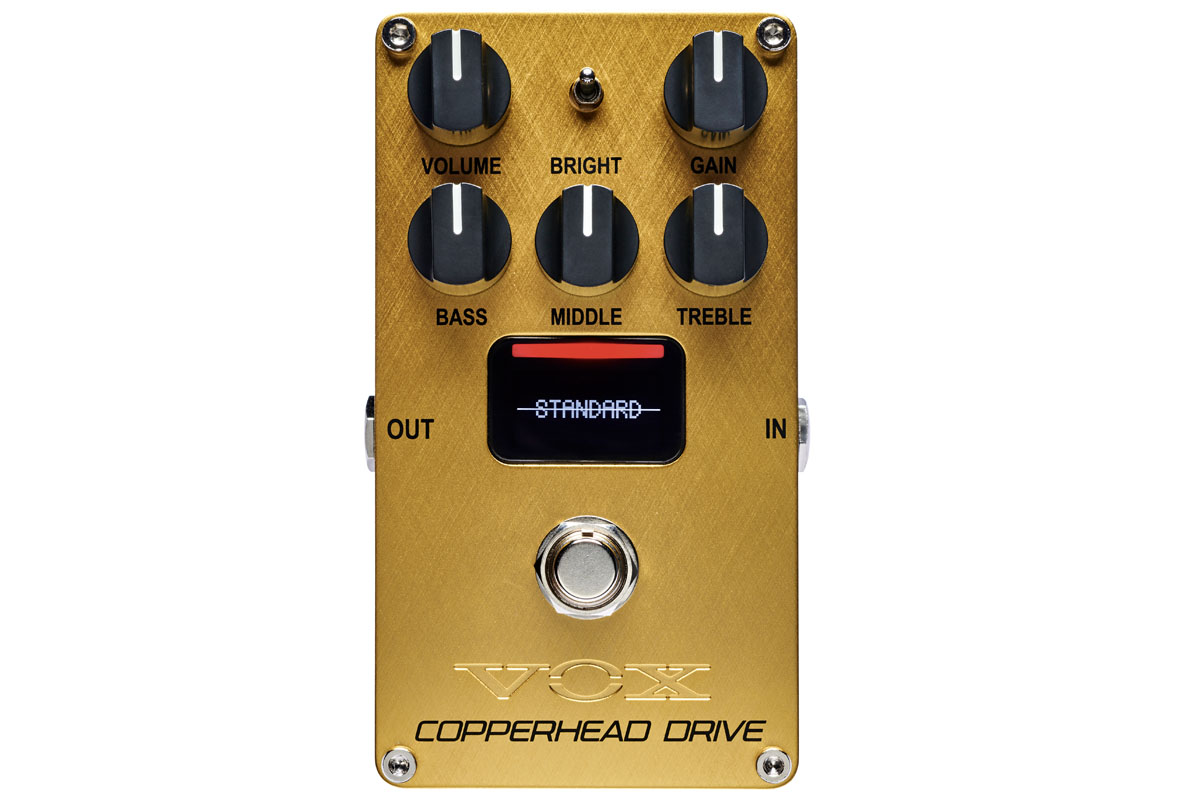
With the gold finish on the enclosure calling to mind the control panels favoured by a certainly Bletchley-based British amp titan, the Copperhead Drive has you covered for that classic Marshall amp stack vibe.
It will do classic Plexi drives but you can tease some more modern drive tones out of it, each with powerful low end and an abundant midrange. There's a lot more punch here than on the Mystic Edge or Silk Drive, but that's not to say that the Copperhead Drive lacks nuance.
The response is dynamic and engaging. You can dial in a subtle Bluesbreaker-style crunch or turn the screw with some nicely saturated drive. Just engage the Bright switch if you need a little more harmonic effervescence in your solos.
In the standard mode, it'll give your amplifier a little Marshall flavour, but the cab sim mode makes this a really cool recording or live tool. Whether rendered through the PA or in your DAW, the three-dimensionality of the 4x12 stack lends your tone some serious weight and power.
Mystic Edge
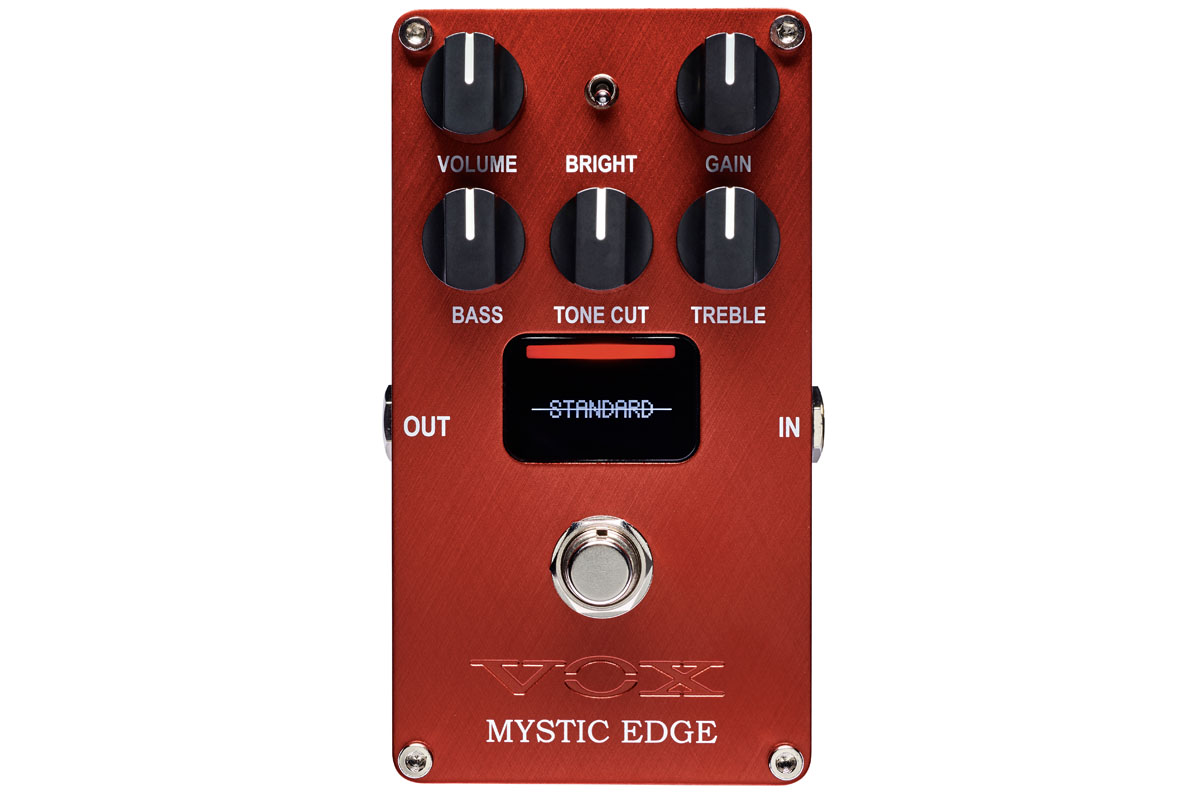
The Mystic Edge, meanwhile, sees Vox playing it closer to home. You could not have an amp-inspired series of drive pedals and not have one packing the bright, musical chime of the AC30.
As with the amp that inspired it, the Mystic Edge is exceptionally touch-sensitive. The gritty raunch of the AC-amps is front and centre as you go all-in on the drive. The Tone Cut knob replaces the Middle controls found on the other Valvenergy pedals' three-band EQs and it works nicely with the pedal's naturally bright top-end.
There's plenty of range on the gain dial. You could park the Mystic Edge in front of your amp and use it as a tone sweetener, with scarcely any gain in the mix. Or you could dime it and wait for the hammer to fall, so to speak.
The cab sim feature offers the wide projection of the AC30 2x12 open-backed cabinet, while preamp mode offers more options – especially while recording. Simply add in your IRs some way down the line.
Silk Drive
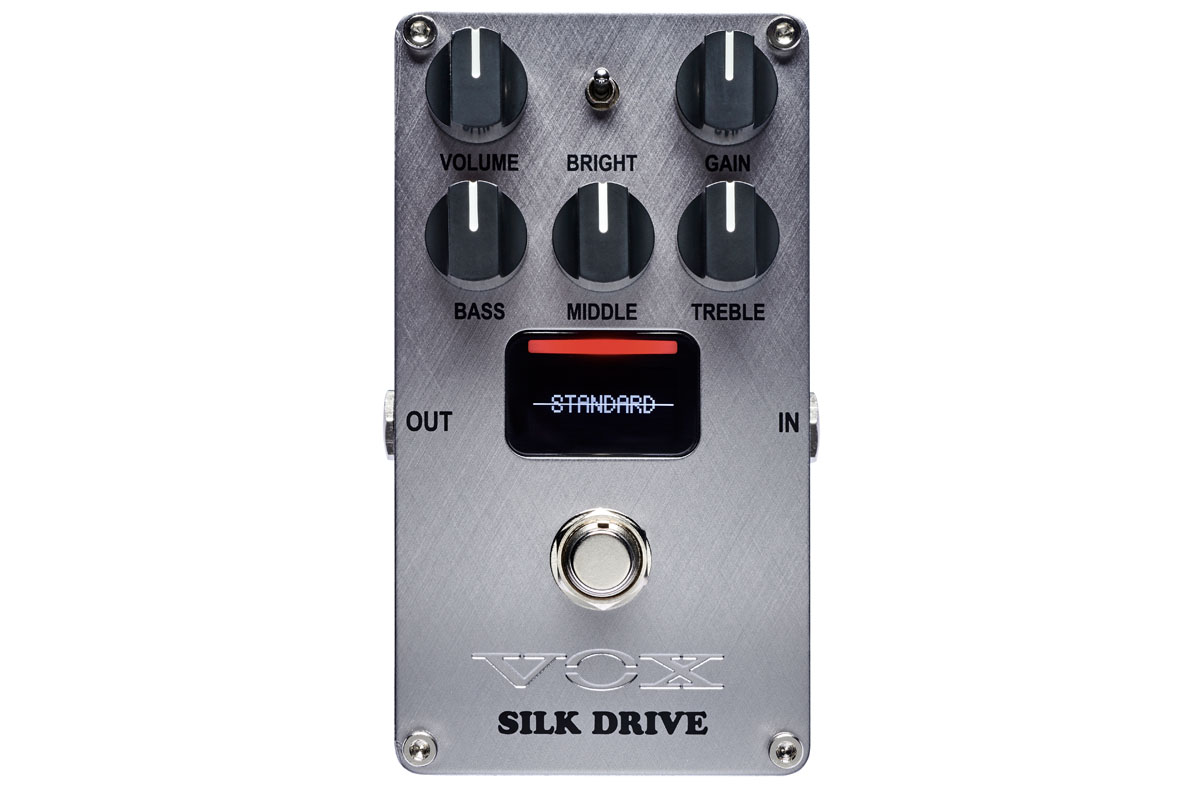
The Silk Drive is a Transatlantic drive of the three here and you could consider it as the low-gain Yin to the Cutting Edge's high-gain Yang. Or something. Either way, out of the whole series this is the most subtle, keeping its clipping powers on the DL until you turn the Drive past noon.
This won't be for everyone – what overdrive is? But it's amazing how many uses you can find for a pedal like this. As a tone sweetener, the Silk Drive has plenty going for it. With everything set at noon on the EQ there's a little less mid-range presence. This, after all, is the character of the US amps it is inspired by.
The silk in the Silk Drive can be found via that smooth top end. The highs here are beautifully detailed, and, of course, further enhanced by engaging the Bright Switch. While this is the most house-trained on the gain front, once you put the squeeze on the gain dial it sure heats up, with plenty of hot grit and that salacious US sizzle you get from a tube combo driven hard.
The cab sim is once more a very useful option, allowing you to access a wide range of exceptional cleans for recording and dial in a little drive where needed. It seems counterintuitive to speak of great cleans from a drive pedal but that's the thing. Some of the best drive pedal epiphanies can be found in that tone-shaping power. Again, it all comes back to that responsiveness, the dynamics, and quite possibly the tube inside.
MusicRadar verdict: Presenting a superlative Vox-in-a-box, Marshall-in-a-box and a very tweakable and subtle US low-gain drive, the Valvenergy series is convincing enough on tone alone. But with the various output modes and the cab sim, shows how the amp-in-a-box format can be modded for the 21st century.
The web says
“The only one of the pedals that can be quite specific about its inspiration is the Mystic Edge, based on an AC30. It’s nicely responsive to playing dynamics and, with a combination of grit and chime, some familiar Vox tones are here to be explored.“
Guitarist
Hands-on demos
Reverb
Andertons
Pete Thorn
Specifications
- PRICE: $179 / £169
- ORIGIN: Vietnam
- TYPE: Drive pedal
- FEATURES: Buffered bypass, oscilloscope display (switchable)
- CONTROLS: Volume, Gain, Bass, Middle (Tone Cut on Mystic Edge), Treble, Bright switch, Mode switch (STD/PRE/CAB), Bypass footswitch
- CONNECTIONS: Standard input, standard output, Link
- POWER: 9V battery or 9V DC adaptor (not supplied) 95mA
- DIMENSIONS: 72 (w) x 120 (d) x 55mm (h)
MusicRadar is the number one website for music-makers of all kinds, be they guitarists, drummers, keyboard players, DJs or producers...
- GEAR: We help musicians find the best gear with top-ranking gear round-ups and high-quality, authoritative reviews by a wide team of highly experienced experts.
- TIPS: We also provide tuition, from bite-sized tips to advanced work-outs and guidance from recognised musicians and stars.
- STARS: We talk to musicians and stars about their creative processes, and the nuts and bolts of their gear and technique. We give fans an insight into the craft of music-making that no other music website can.
"I said, “What’s that?” and they said, “It’s what Quincy Jones and Bruce Swedien use on all the Michael Jackson records": Steve Levine reminisces on 50 years in the industry and where it’s heading next
“Excels at unique modulated timbres, atonal drones and microtonal sequences that reinvent themselves each time you dare to touch the synth”: Soma Laboratories Lyra-4 review
“I used everything I knew about music”: How Green Day exceeded expectations with their most ambitious song
